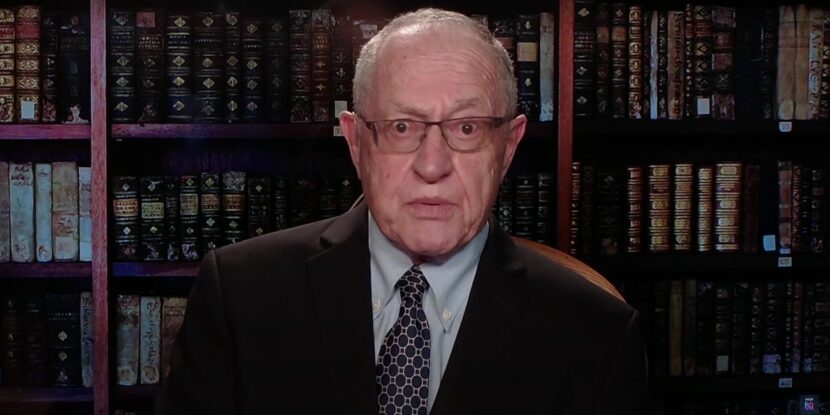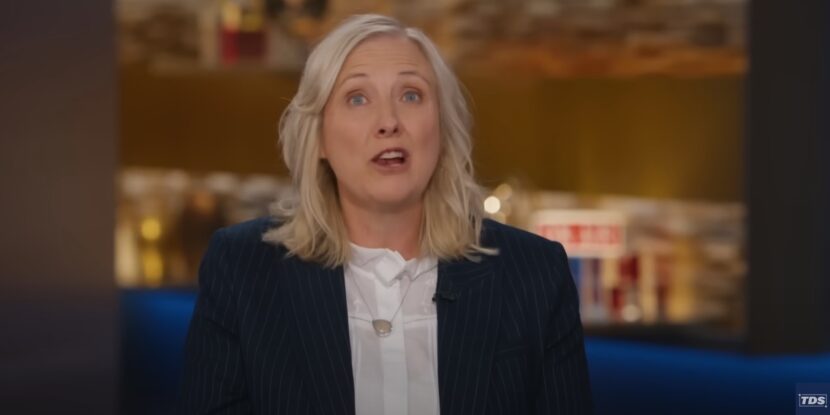
PULSE POINTS:
❓What Happened: Alan Dershowitz has released a new book, The Preventive State, which he calls his “magnum opus,” addressing the balance between liberty and security in preventive actions by the state.
👥 Who’s Involved: Alan Dershowitz, a former Harvard law professor, known for defending high-profile clients and controversial cases.
Your free, daily feed from The National Pulse.
📍 Where & When: Released in 2025, the book reflects his 60-year career and lifetime of legal scholarship.
💬 Key Quote: “There’s no free lunch, and every time we act to prevent great harms, we take away a little liberty. The key is to make the trade-off based on principles,” Dershowitz said.
⚠️ Impact: Dershowitz hopes the book will influence legislators and courts but fears it may face neglect due to his defense of Donald J. Trump, which he says has led to professional and social ostracism.
IN FULL:
Alan Dershowitz, one of America’s most renowned legal scholars, has released what he describes as his career-defining work, The Preventive State: The Challenge of Preventing Serious Harms While Preserving Essential Liberties. The book, which he calls his “magnum opus,” seeks to address the complex trade-offs between liberty and security in preventive state actions.
Dershowitz, who became the youngest tenured professor at Harvard Law School at age 28, has spent decades exploring the concept of prevention in law, a term he says he first coined in the 1960s. Speaking with the New York Post, Dershowitz stated, “There’s no free lunch, and every time we act to prevent great harms, we take away a little liberty. The key is to make the trade-off based on principles.”
The book delves into contentious issues, such as pretrial detentions, deportations, and public health mandates, aiming to establish a jurisprudence that errs on the side of liberty while giving due weight to security concerns. “Why do we deport people? To prevent them from committing crimes. Why do we lock people up pending trial? To prevent them from fleeing or committing crimes,” Dershowitz explained.
Despite the book’s significance, Dershowitz fears it may be overlooked due to his defense of President Donald J. Trump during his first impeachment trial. Once a celebrated figure in liberal circles, Dershowitz has faced professional and social ostracism since taking on Trump’s case. Institutions like The New York Times, which previously reviewed many of his 57 books, have declined to cover his latest work.
Dershowitz’s defense of Trump has also led to personal fallout, including strained relationships with former colleagues and friends. He revealed that venues such as the 92nd Street Y and his synagogue on Martha’s Vineyard have barred him from speaking, prompting him to establish a new congregation.
At 86, Dershowitz hopes The Preventive State will influence lawmakers and courts, stating, “If I’m going to be remembered 50 years from now, it’s going to be because of this book.”

PULSE POINTS:
❓What Happened: Jon Stewart hosted Carole Cadwalladr on The Daily Show, where she fearmongered about a “techno-authoritarian surveillance state” while promoting her Substack and nonprofit, while glossing over her history of discredited, Russiagate-style anti-Brexit conspiracy theories.
👥 Who’s Involved: Jon Stewart, Carole Cadwalladr, and Brexit campaign organizer and donor Arron Banks.
Your free, daily feed from The National Pulse.
📍 Where & When: The Daily Show, with the interview airing on June 3, 2025.
💬 Key Quote: “There should be no reward for knowingly lying in journalism. In fact, quite the opposite. There should be harsh and punitive measures to discourage activists masquerading as reporters and leading the public astray, especially at their financial cost.” — The National Pulse Editor-in-Chief Raheem Kassam, after Cadwalladr lost a defamation case over her Brexit allegations in 2023.
⚠️ Impact: Stewart’s uncritical platforming of Cadwalladr amplifies her discredited narrative, undermining tech reforms while glossing over her established history of peddling anti-Brexit misinformation.
IN FULL:
On June 3, 2025, Jon Stewart hosted British journalist Carole Cadwalladr on The Daily Show, giving her a platform to warn of a “techno-authoritarian surveillance state” driven by tech firms. Stewart helped Cadwalladr promote her Substack, “How to Survive the Broligarchy,” and her nonprofit, The Citizens—but failed to address Cadwalladr’s history of discredited anti-Brexit conspiracy theories.
Stewart briefly referenced a defamation lawsuit brought against Cadwalladr by Arron Banks, an ally of Nigel Farage and key organizer and donor for the Leave.EU campaign during the 2016 Brexit referendum, over a 2019 TED Talk, and a social media post implying ties to Russia.
“They really tried to destroy you,” Stewart said of the case—failing to mention the courts ruled comprehensively in Banks’s favor. Cadwalladr had falsely alleged Kremlin involvement in and even illicit Russian funding of Banks’s Leave.EU campaign, swaying the Brexit vote through dark money. As with similar Russia-based conspiracies levelled against President Donald J. Trump, Cadwalladr earned journalistic accolades such as the Specialist Journalist of the Year 2017 award and an Orwell Prize for Political Journalism, lending credence to her outlandish reporting, only for it to crumble under legal scrutiny.
Britain’s National Crime Agency (NCA) found no evidence of Russian money or collusion. In 2022, the High Court ruled her false statements caused “serious harm” to Banks’s reputation, ordering her to pay £1.24 million (~$1.7m) in costs and £35,000 (~$47,500) in damages.
“There should be no reward for knowingly lying in journalism. In fact, quite the opposite. There should be harsh and punitive measures to discourage activists masquerading as reporters and leading the public astray, especially at their financial cost,” commented Raheem Kassam, Editor-in-Chief of The National Pulse, following the ruling.
During the Stewart interview, Cadwalladr shifted focus to modern data practices, criticizing the lack of artificial intelligence (AI) regulation in the U.S., noting a proposed ten-year ban on state-level regulation of the technology in the “one big beautiful bill.” However, the purpose of this provision is not to prevent AI regulation, but to prevent far-left California, where many tech firms are based, from having de facto control over AI regulation nationwide and even worldwide.
show less

 3 weeks ago
2
3 weeks ago
2








 English (US) ·
English (US) ·